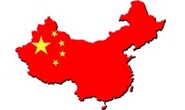Government/Policy

July 22, 2018
Trump: Our Tariffs are Bigger than Yours
Written by Sandy Williams
Let’s up the ante to $500 billion. That’s what President Trump is proposing in tariffs against virtually everything China exports to the United States.
“I raised $50 billion, and they matched us. I say, ‘You don’t match us. You can’t match us, because otherwise, we’re always going to be behind the eight ball,’” said Trump in an interview with CNBC on Thursday.
Trump said he is willing to add to the $34 billion in tariffs already slapped on China and ramp up the proposed additional $200 billion to $500 billion. The president said he is not worried about any political backlash that imposing additional tariffs may incur. “I’m not doing this for politics, I’m doing this to do the right thing for our country,” Trump said. “We have been ripped off by China for a long time.”
Last week, White House National Economic Council Director Larry Kudlow and Chinese Foreign Ministry spokeswoman Hua Chungying exchanged blame for the burgeoning trade war. “I don’t think President Xi at the moment has any intention of following through on the discussions we made, and I think the president is so dissatisfied with China on these so-called talks that he is keeping the pressure on,” Kudlow said.
Inside US Trade reports that Hua blamed the U.S. for escalating the trade war and said Kudlow’s comment “honestly entails some extraordinary imagination and is just preposterously shocking.”
“From the very beginning, we made clear our firm position of not wanting to fight but never afraid of fighting. The U.S., however, holding high its baton, has been rudely threatening and coercing China, and brazenly engaging in flip-flopping and backpedaling, which is the direct and root cause for the escalation of the situation,” Hua said. “The U.S. should keep in mind that today is the 21st century with a high level of economic globalization, and it is China they are dealing with. Those in the U.S. should drag themselves out of their quixotic fantasy and stop acting as if they were the Don Quixote of the 17th century.”
Trump Claims Currency Manipulation
Trump also took issue with Beijing and the European Union for “manipulating their currencies” and lowering interest rates at a time when the U.S. Federal Reserve plans to increase U.S. interest rates. Wanting a weaker U.S. dollar to make U.S. exports more attractive, Trump said China and the EU are not playing fair.
Trump tweeted on July 19: “China, the European Union and others have been manipulating their currencies and interest rates lower, while the U.S. is raising rates while the dollar gets stronger and stronger with each passing day – taking away our big competitive edge. As usual, not a level playing field.”
The euro dropped below the $1.16 level after comments by Chairman Jerome Powell fed expectations of two more rate hikes by the U.S Federal Reserve this year.
Chinese currency dropped on Friday to Rmb 6.8117 against the dollar, its lowest level since June 2017, after the People’s Bank of China reduced its currency reference rate by 0.9 percentage points.
“Concerns about escalating Sino-U.S. trade tensions have rattled the renminbi, which has given back all its first-half gains against the U.S. dollar within just a few weeks,” said Chi Lo, a senior strategist for Greater China at BNP Paribas Asset Management, as quoted by the Financial Times.
“Its sharp fall has also raised the suspicion that Beijing might have shifted to a devaluation policy to fight the trade war. I beg to disagree,” said Lo. He added that Beijing was wary of repeating the currency sell-off in August 2015 that caused “havoc” on global markets.
In April 2017, Trump was criticized for not following through with campaign promises to name China as a currency manipulator. In October 2017, the U.S. Treasury department again declined to give China the currency manipulator designation.
In a second tweet, Trump added: “The United States should not be penalized because we are doing so well. Tightening now hurts all that we have done. The U.S. should be allowed to recapture what was lost due to illegal currency manipulation and BAD Trade Deals. Debt coming due & we are raising rates – Really?”
During the CNBC interview, Trump said, “I’m not thrilled [with the Fed’s rate hike] because we go up, and every time you go up they want to raise rates again. I don’t really—I’m not happy about it. At the same time, I’m letting them do what they feel is best.”
Trump was criticized strongly for his statement and tweet. There is no “letting them” when it comes to the Federal Reserve. The Federal Reserve is an independent agency that is supposed to be free from political pressure. The comments were seen by some as an attempt to influence the Federal Reserve Board.
The White House rolled out damage control after the interview saying in a statement, “Of course the president respects the independence of the Fed. As he said, he considers the Federal Reserve Board Chair Jerome Powell a very good man and that he is not interfering with Fed policy decisions. The president’s views on interest rates are well known and his comments today are a reiteration of those long-held positions and public comments.”







